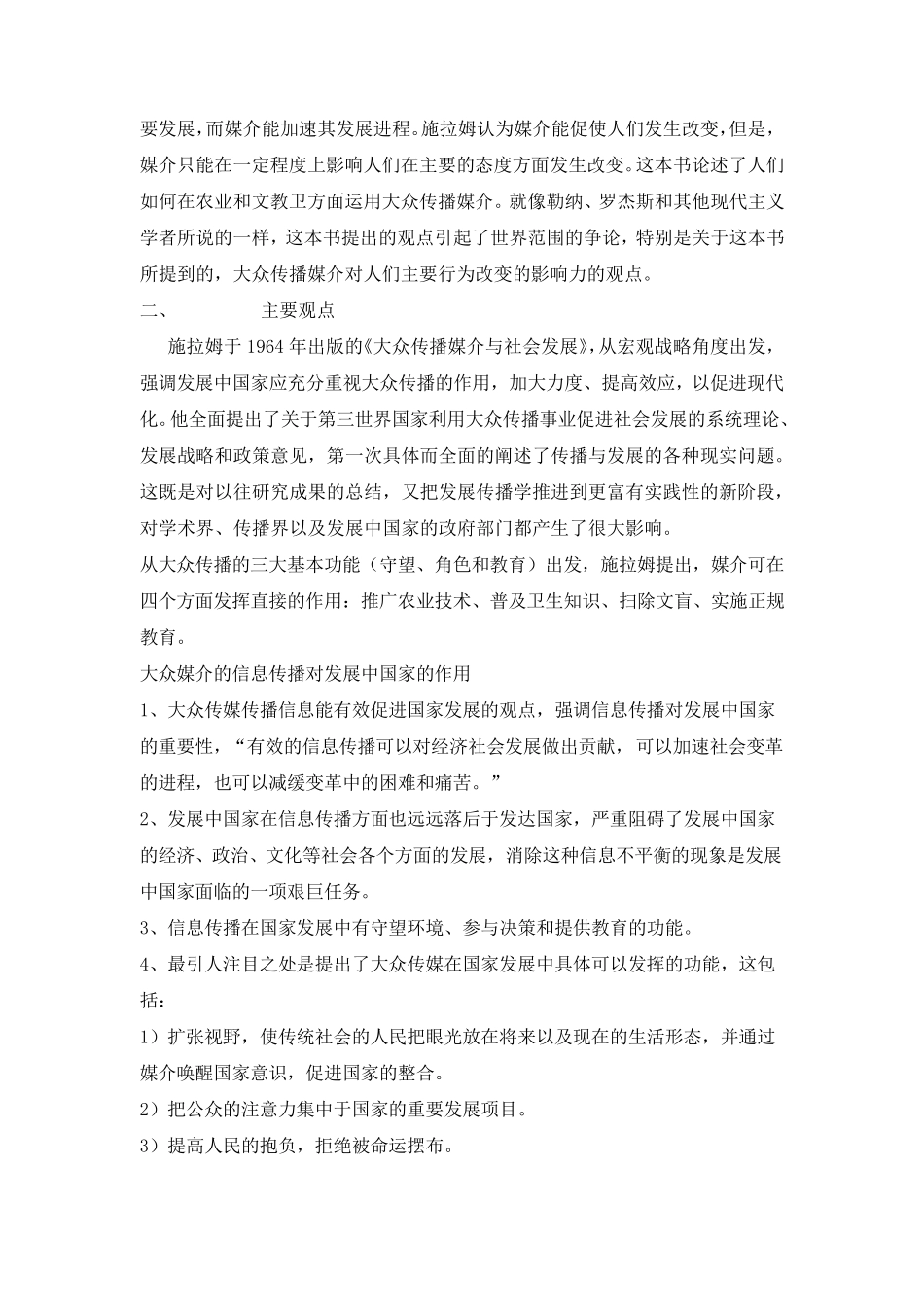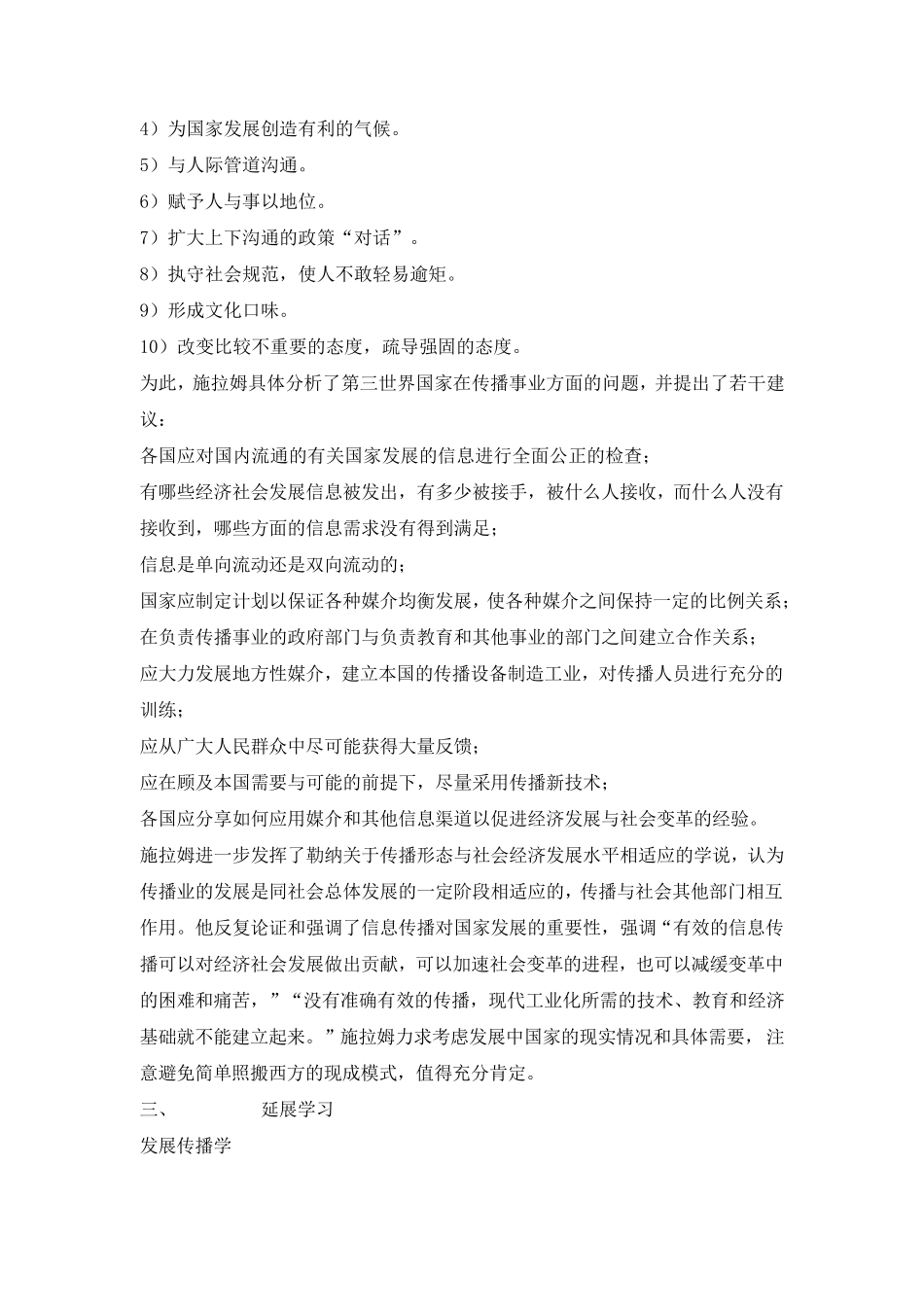Mass media and national development: the role of information in the developing countries Schramm, W 1964 大众传播媒介与社会发展:信息对发展中国家的作用 一、 写作背景 In the 1960s there was a strong belief in the power of mass media to easily propagate ideas on social change. Calls to improve mass communication systems of underdeveloped countries were made as a response to the UN General Assembly Report saying that 70% of the world’s population had inadequate access to information. Said calls came with the need to write a guide on how underdeveloped countries could optimise the power of the mass media for development. Wilbur Schramm accepted the task. He was then connected with the Stanford Institute of Communication Research. The product was this book, Mass media and national development: the role of information in the developing countries. This book implicitly argues that the nation-state promoting development is ideal, and that the media can hasten the process. Schramm argues the media entice people to change. However, media can only do so much when it comes to influencing people in making major attitudinal change. The book discusses campaigns on agriculture, health, literacy and formal education using mass media. Just like works of Lerner, Rogers and other modernists, ideas put forward in this book have been widely contested worldwide, especially when it comes to the power of mass media in influencing major behavioural change. 20 世纪60 年代,人们坚信大众传播媒介有便捷传播社会变革信息的能力。联合国大会报告显示全球有70%的人口缺乏获得信息的渠道,因此有呼吁认为应促进不发达国家的大众传播系统的建设。针对上述呼吁,需要有人来撰写文书阐明不发达国家应如何充分利用大众传播媒介的影响以促进国家发展。施拉姆接受了这项任务,并且联系了斯坦福传播研究学院...


